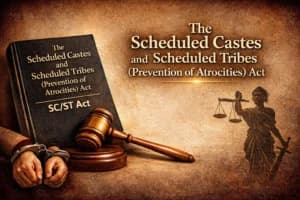In a judgment that resonated across Kerala’s temple administration circles, the High Court of Kerala on Wednesday dismissed a petition filed by the Akhila Kerala Thanthri Samajam, challenging the Travancore Devaswom Board’s (TDB) authority to recognize and accredit institutions imparting Thanthric education.
The Bench of Justice Raja Vijayaraghavan V and Justice K.V. Jayakumar upheld the legality of the Travancore Devaswom Board Officers and Servants’ Service Rules, 2022, emphasizing that modern recruitment and certification practices cannot be subjugated to hereditary monopolies.
Background
The petitioners - the Akhila Kerala Thanthri Samajam and its president - had contested Qualification No. 2(ii) of Rule 6(1)(b) of the 2022 Service Rules, which requires priesthood candidates to hold certificates from Thanthra Vidyalayas approved by either the Travancore Devaswom Board or the Kerala Devaswom Recruitment Board (KDRB).
The Samajam, representing over 300 traditional Thanthri families, argued that the rule diluted centuries-old customs by allowing institutions without adequate spiritual lineage to certify temple priests (Shanthis). They claimed that the KDRB lacked both the statutory and spiritual competence to judge or recognize institutions in the Thanthric domain.
"The system where the Thanthri is seen as the spiritual father of the deity cannot be reduced to paperwork," the petitioners argued, warning that unregulated institutions could "commercialize faith and weaken sacred traditions."
Court's Observations
The Bench heard extensive arguments from the petitioners and the respondents - the State of Kerala, TDB, and KDRB - before arriving at its decision.
In its detailed judgment, the court noted that the TDB had acted within its statutory authority under Section 35(2)(e) of the Travancore-Cochin Hindu Religious Institutions Act, 1950, which empowers it to frame rules governing recruitment, qualifications, and conduct of temple staff. The judges pointed out that the Special Rules of 2022 were approved by the State Government after public notice and invitation for objections - none of which were filed by the Samajam at the time.
Rejecting the petitioner's claim that Thanthri-issued certificates alone should be valid, the Bench remarked:
"Restricting priestly certification to hereditary families would undermine the constitutional principle of equality. The temple doors must open for all who are qualified - not merely those born into privilege."
The court highlighted that the objective of the new certification framework was not to erase tradition but to ensure inclusivity and uniform standards across Kerala’s temple ecosystem. The judgment acknowledged that the KDRB, through expert committees of respected Thanthris and scholars, had conducted inspections and evaluations before granting recognition to 41 Thanthra Vidyalayas.
Addressing the Samajam’s concerns about unqualified institutions, the court noted that the KDRB had already suspended recognition of 14 substandard centers and mandated quality audits every three years.
The Bench also took cognizance of the constitutional values of equality and secularism, emphasizing that hereditary priesthood cannot claim immunity from reform. In a pointed remark, Justice Vijayaraghavan observed:
"Faith cannot be inherited as an entitlement. It must be earned through discipline and devotion, guided by rules ensuring fairness and transparency."
Decision
In conclusion, the Kerala High Court dismissed the writ petition, upholding the validity of the Travancore Devaswom Board Officers’ and Servants’ Service Rules, 2022, and affirming that the TDB and KDRB are competent to approve and oversee Thanthric training institutes.
The court declined to interfere with the existing recruitment process, observing that the reforms ensure professionalism, transparency, and inclusivity in temple administration.
With this ruling, the High Court effectively reaffirmed the State’s authority to regulate temple priest appointments through structured, merit-based criteria - a move that many view as a balance between preserving tradition and promoting constitutional equality.
The matter was thus disposed of, with no relief granted to the petitioners.
Case Title: Akhila Kerala Thanthri Samajam & Another vs. State of Kerala & Others
Case Number: Writ Petition (Civil) No. 3994 of 2024















